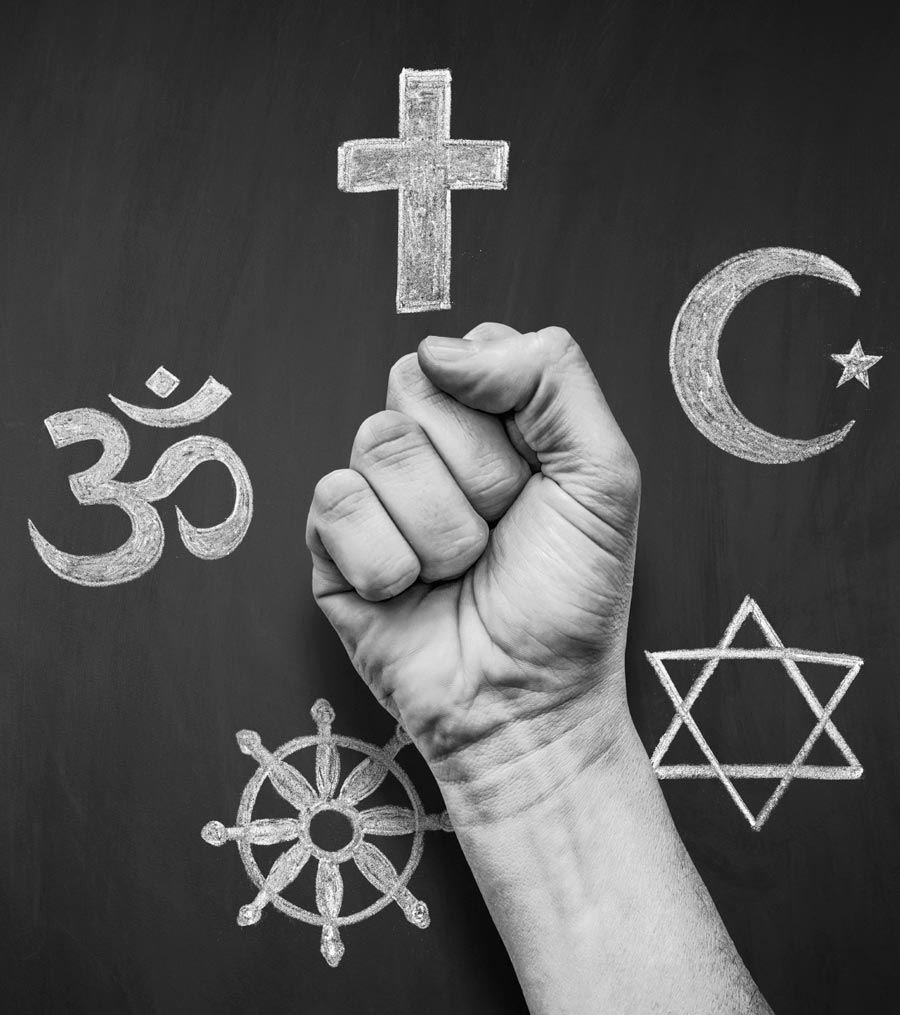The question of why prophets suffer has intrigued theologians, philosophers, and seekers alike for centuries. In the Baha’i Faith, this inquiry transcends mere curiosity; it is essential to understanding the relationship between divine purpose and human experience. The teachings elucidate that prophets, as exemplars of spiritual evolution, navigate trials that illuminate their humanity and the profundity of their messages.
To comprehend the suffering of prophets, one might consider the metaphor of a sculptor chiseling away at marble. Each strike of the chisel not only reveals the beauty within but also generates dust and fragments—suffering, in this analogy, reflects the transformative process of spiritual refinement. Just as the sculptor endeavors to reveal form through effort and challenge, so too do prophets face tribulations as a means to fulfill their exalted responsibilities.
At the outset, it is critical to recognize the dual nature of suffering that pervades the human experience. Suffering can be a catalyst for growth, awakening the soul to deeper realizations and intensifying compassion. Prophets, as conduits of divine wisdom, exemplify this transformative potential. Their lives witness a profound juxtaposition between their elevated station as messengers of God and the trials inflicted by humanity. These tribulations serve not only to enhance their spiritual stature but also to unveil the ineffable qualities of faith and resilience inherent within the human spirit.
The Baha’i teachings assert that prophets, while divinely appointed, are also wholly human. They endure persecution, rejection, and even martyrdom as emblematic of their mission. The suffering experienced by these exalted beings is often conceptualized as necessary for the exposition of divine will. Omnipotent in essence, their tribulations act to demonstrate the profound love that God bears for humanity, as prophets embody the attributes of sacrifice and devotion. The challenges they face resonate as poignant reminders of the trials encountered by everyday individuals, offering a bridge between the celestial and terrestrial realms.
One pivotal aspect of prophetic suffering is its role in the evolution of human consciousness. It is often through hardship that individuals are propelled towards a greater understanding of their purpose and their interconnectedness with the universe. The prophet’s journey serves as a poignant narrative that challenges adherents to confront their moral and ethical responsibilities. This profound empathy forged through shared suffering fosters a bond between the messenger and the message, resulting in a richer, more profound engagement with spiritual teachings.
Moreover, the nature of prophecy itself implies a certain inevitability of suffering. Prophets often emerge in contexts rife with social turbulence, spiritual ignorance, or moral decay. Their mission typically involves challenging norms and inspiring radical transformations within societies. Consequently, the resistance they encounter from established authorities and entrenched belief systems is as predictable as it is tragic. This resistance is borne of fear—fear of change, fear of the unknown, and fear of relinquishing control over established power structures.
In this vein, the martyrdom of prophets can be viewed as a paradoxical contribution to spiritual awakening. Martyrdom becomes the ultimate expression of commitment to a higher cause. In their ultimate sacrifice, these figures promulgate the message that love, justice, and truth often exact a personal cost. Their suffering does not merely serve as a backdrop but rather as a fulcrum around which their teachings pivot. The agony they endure transforms into a beacon of hope for adherents, illustrating that suffering can yield not only personal redemption but also societal transformation.
For adherents of the Baha’i Faith, the status of suffering prophets elucidates the interconnectedness of existence. Every trial faced by these divine emissaries reverberates throughout the cosmos, signifying the deep unity of all creation. The themes of love, sacrifice, and perseverance emerge as essential components of the teachings, inviting reflection on one’s own journey and contributions to the collective human narrative. In essence, the enduring legacy of prophets lies not solely in their divine teachings but also in the human experience of grappling with suffering, illustrating that grace and hardship coexist in the tapestry of existence.
Furthermore, Baha’i teachings delineate the unique role of contemporary prophets, such as Baha’u’llah, who has endured immense trials in fostering a new spiritual paradigm. His sufferings are emblematic of the trials faced by all who strive to promulgate truth in an often indifferent or hostile world. The enduring messages encapsulated in His revelations challenge believers to embody the principles of love, unity, and service. The reflection upon the sufferings of prophets urges a paradigm shift for individuals, encouraging them to transcend their personal trials while actively contributing to the spiritual and material progress of humanity.
Ultimately, understanding the suffering of prophets serves to empower believers to confront their own challenges with resilience and courage. It elucidates the dynamic interplay between pain and enlightenment, emphasizing that struggles are intrinsic to the pursuit of truth. As individuals gain a deeper appreciation for the journeys undertaken by these divine figures, they cultivate a poignant awareness that their own lives, authentic in their struggles, resonate with the fundamental teachings of love, compassion, and unity that lie at the heart of the Baha’i Faith.
In conclusion, the question of why prophets suffer is interwoven within the very fabric of spiritual understanding. This suffering elevates their messages, challenges the status quo, and ultimately enriches the human experience. The lessons gleaned from their trials resonate through the ages, beckoning individuals to explore their spiritual footing amid life’s various dichotomies and inviting them to embrace the full spectrum of existence with grace, determination, and faith.
